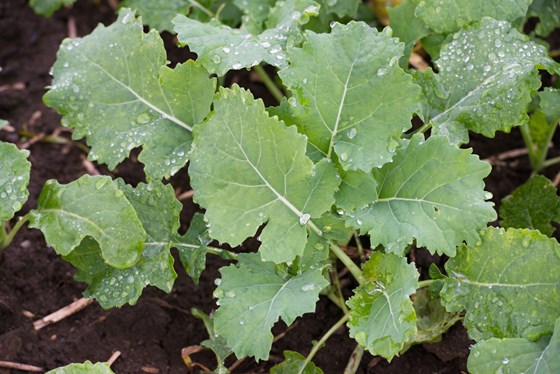News from the Field - March 2017
A wet February has its bonuses – for starters it gives us precious time in the workshop to get all of the machinery ready for the hectic spring workload.

Wet fields also mean less poachers, as getting stuck in the mud hugely increases their risk of getting arrested!
In the warm, dry office, I can also get on top of the field data and figures for this year, because, as in any business, knowledge is key. The amount of inputs I use on the crops will affect the final cost of production so, by keeping a close handle on this, I can then watch the markets and sell grain at the right time - and hopefully make a profit! Technology is improving all the time and I have recently been on a training course to understand how to use a new piece of technology on our fertiliser application equipment. Our new ‘Nitrogen Sensor’ will use an infra-red beam to measure the amount of chlorophyll (‘green-ness’) in a crop at any given growth stage, and then apply the appropriate amount of nitrogen to supply the plant with its needs. The GPS on the equipment will also ensure that the same area isn’t be treated twice and the weigh cells on the machine will accurately measure how much nitrogen I have used in each field, so I can add this information to my cost of production data. This kind of technology and accuracy of application shows just how far agriculture has moved on in the last few decades.
The oilseed rape and wheat crops will soon be supplemented with nitrogen, potash and phosphorus - just the same nutrients as you would use in your vegetable gardens. We also have to monitor the presence of sulphur in the fields and add some of this into the soil in the spring too. Since the decline of manufacturing industry in this country, sulphur deficiency in the soil is a national problem and too little sulphur in the seed bed can prevent the other nutrients having maximum impact on plant growth.
This year the land swap we undertake with a neighbouring farmer means that there will be broccoli growing in some of our fields. This is harvested earlier than the cabbages we often have, meaning we can get a wheat crop in afterwards. Broccoli is a tricky vegetable to grow – it soon takes off once it starts growing and can quickly grow bigger than the supermarket specifications, needless to say our neighbour will be keeping a close eye on it!
Finally, while the shooting season has finished, you may still hear the occasional bang from our bird scarers, as the pigeons start to take an interest in the oilseed rape crop. We use these scarers, as well as flying kites shaped like birds of prey over the fields, to scare off the pigeons humanely, but they soon get wise so each week the scarers have to be moved around. If you know of any other methods that are more effective, do let me know!
Martin Hodgson, Farm Manager